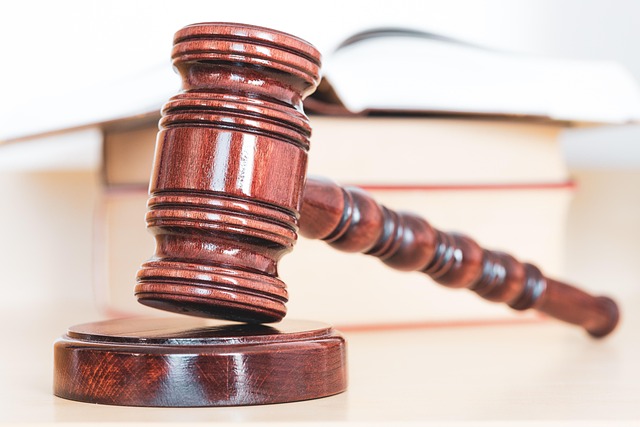Regulatory fraud laws protect consumers and investors from businesses engaging in deceptive practices like misrepresenting industry standards, financial reports, or product safety. Plea negotiations significantly impact trial outcomes, with defendants often choosing plea bargains over trials to mitigate penalties. Accepting a plea deal carries risks, including admitting guilt, which can affect the company's reputation and future operations. Strategic plea bargaining empowers defendants to navigate legal complexities and protect their rights, but miscommunication or unfair terms could lead to legal challenges. High-profile fraud cases have shown that effective defense strategy demands understanding of how negotiations impact outcomes, especially in complex financial crimes where transparency from prosecutors is vital.
In today’s complex business landscape, understanding regulatory fraud laws is paramount. This article delves into the intricate world of these laws, focusing on key definitions and their scope. We explore strategic plea negotiation techniques and their profound impact on defendant outcomes, particularly in the context of How Plea Negotiations Affect Trial Outcomes. Through examining high-profile cases and negotiated settlements, we uncover crucial insights into prosecutorial discretion and its consequences.
- Understanding Regulatory Fraud Laws: Key Definitions and Scope
- Plea Negotiation Strategies: Impact on Defendant Outcomes
- Prosecutorial Discretion: When Plea Deals Go Wrong
- Case Studies: High-Profile Frauds and Negotiated Settlements
Understanding Regulatory Fraud Laws: Key Definitions and Scope

Regulatory fraud laws are designed to protect consumers, investors, and the public from deceptive practices within various industries. Understanding these laws begins with defining key terms. Fraud refers to intentional deception aimed at gaining an unfair advantage, while regulations are rules established by governing bodies to govern specific sectors. When a business engages in fraudulent activities related to industry standards, financial reporting, or product safety, it falls under the scope of regulatory fraud.
The impact of plea negotiations on trial outcomes is significant. In many cases, defendants facing regulatory fraud charges opt for plea bargains instead of jury trials. This strategy can be beneficial for both parties; a plea bargain may result in reduced penalties and a quicker resolution compared to lengthy general criminal defense proceedings. However, it’s crucial to consider the implications carefully, as accepting a plea deal might involve admitting guilt, which could have long-term consequences on the respective business’s reputation and future operations.
Plea Negotiation Strategies: Impact on Defendant Outcomes

Plea negotiation strategies play a pivotal role in shaping defendant outcomes within regulatory fraud cases. These negotiations, which occur before trial, provide an opportunity for both parties to reach a mutually agreeable resolution. Prosecutors and defense attorneys engage in discussions regarding potential plea deals, offering alternatives to the initial charges. This process can significantly impact the trajectory of the case, from avoiding lengthy jury trials to securing more favorable outcomes.
The strategic use of plea negotiations allows defendants to navigate the complex legal landscape. By accepting a plea bargain, individuals may secure a complete dismissal of all charges or reduced sentences, especially if they cooperate with investigators during all stages of the investigative and enforcement process. This approach can be particularly beneficial when faced with strong evidence against them. Such strategies ensure that the defendant’s rights are protected while potentially alleviating the burden of a high-stakes jury trial.
Prosecutorial Discretion: When Plea Deals Go Wrong

In many jurisdictions, prosecutors possess a significant degree of discretion when it comes to plea negotiations. This power can significantly shape the trajectory of high-stakes cases, especially in the realm of white collar defense. Plea deals offer a route for defendants to avoid lengthy and complex trials, but they are not without risks. When these negotiations go awry, it can lead to severe consequences for both parties involved. For instance, if a defendant accepts a plea bargain only to later realize the terms were unfair or misleading, there could be grounds for legal recourse.
Understanding how plea negotiations affect trial outcomes is crucial in general criminal defense strategy. Effective plea bargaining requires meticulous communication and a deep grasp of the law. Mistakes or misunderstandings can result in unacceptable plea deals, leaving defendants exposed. Prosecutors must uphold their end of the bargain, ensuring fairness and transparency throughout the process. This is particularly important in complex financial crimes where the stakes are high and the consequences significant.
Case Studies: High-Profile Frauds and Negotiated Settlements

In recent years, several high-profile fraud cases have captured public attention, demonstrating the significant impact of regulatory fraud laws. These cases, often involving large corporations and prominent individuals, serve as powerful examples of how plea negotiations can shape trial outcomes. For instance, the settlement between a major banking institution and regulatory bodies highlights a strategic decision to plead guilty in exchange for reduced penalties. This approach allows companies to avoid the potential consequences of a conviction, including severe fines and damage to their public image.
The outcome of these negotiations is particularly crucial in high-stakes cases where white-collar and economic crimes carry substantial legal and financial implications. Plea bargains can lead to more favorable terms for the defendants, allowing them to mitigate the overall impact of the fraud. However, it’s essential to consider that these agreements also require transparency and accountability, ensuring that individuals and organizations take responsibility for their actions without avoiding justice entirely.
Regulatory fraud laws are complex tools designed to protect public integrity. Understanding their scope, from key definitions to plea negotiation strategies, is crucial in navigating potential legal outcomes. As seen through case studies of high-profile frauds, negotiated settlements can significantly impact trial results, highlighting the importance of strategic defense and prosecutorial discretion. By examining these elements, individuals and organizations can better prepare for potential challenges, ensuring fair and just resolutions under regulatory fraud legislation. Moreover, recognizing how plea negotiations affect trial outcomes empowers stakeholders to advocate for transparency and integrity within legal proceedings.






